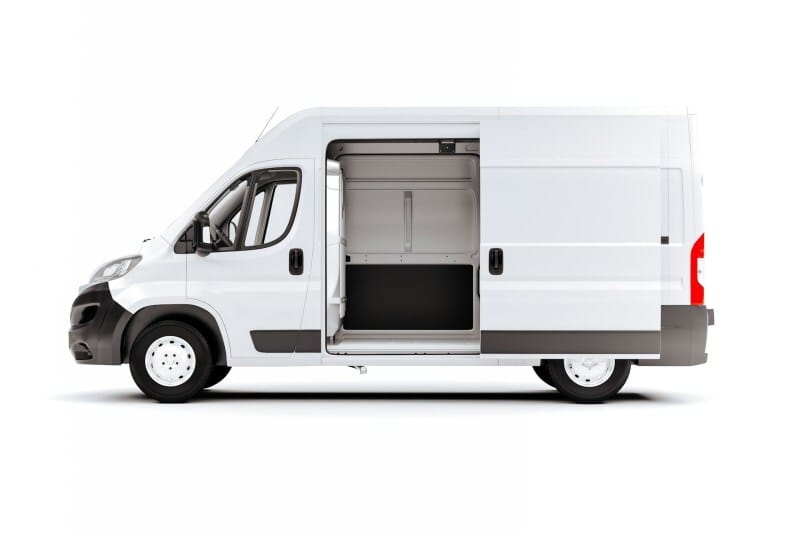If you’re in the market for a workhorse vehicle but don’t want to pay full price, salvage trucks for sale could be the perfect solution. These vehicles often come from insurance write-offs but still have plenty of life left — especially for buyers willing to invest some time in repairs or repurposing.
Whether you’re a contractor, DIY enthusiast, or someone looking for a capable hauler without breaking the bank, salvage trucks offer excellent value and flexibility. In this blog, we’ll walk you through what salvage trucks are, why they’re a smart buy, what to look for, and how to make the most of your purchase.

What Are Salvage Trucks?
Salvage trucks are pickups or commercial vehicles that have been declared total losses by insurance companies due to damage, theft, or weather-related events. These trucks are then sold at auction or through specialized resellers with salvage titles.
Damage may range from minor cosmetic issues to more serious mechanical or structural problems. In many cases, the trucks are still drivable or require basic repairs to return to service.

Types of Salvage Trucks
● Light-duty pickups (Ford F-150, Chevy Silverado, Ram 1500)
● Heavy-duty work trucks (F-250, Silverado 2500HD, Ram 3500)
● Commercial trucks (box trucks, service trucks, utility pickups)
● Off-road rigs and lifted trucks
● Diesel trucks popular in agricultural or hauling applications

Why Do Trucks Get Salvaged?
Accidents – Cosmetic or frame damage may lead to a total loss, even if the drivetrain is fine.
Theft Recovery – Stripped or partially damaged trucks often end up at auction.
Weather Damage – Floods, hail, or fire exposure lead many trucks to salvage status.
Mechanical Failures – High repair costs on engines or transmissions can trigger insurance totals.

Why Buy a Salvage Truck?
1. Cost Savings
Salvage trucks are sold at a significant discount — often 50–70% less than clean-title trucks.
2. Durability
Trucks are built for abuse. Even damaged ones can serve reliably after repairs.
3. Work Value
For many tradespeople and businesses, a reliable truck doesn’t need to look pretty — it just needs to perform.
4. Customization Potential
Perfect base for utility conversions, off-road rigs, or project builds.
5. Parts Value
Even non-repairable trucks may be worth more in parts than as whole vehicles.
Where to Find Salvage Trucks for Sale
● Online salvage auctions (Copart, IAAI, AutoBidMaster)
● Government and fleet liquidation auctions
● Tow yards and impound lots
● Facebook Marketplace, Craigslist
● Truck-specific salvage resellers
Look for listings using terms like “needs work,” “mechanic special,” or “salvage title.”
What to Check Before You Buy
Frame and Suspension – Damage here can be expensive or render a truck unsafe.
Drivetrain – Can the engine run? Is the transmission functional?
Title Status – Confirm it’s salvage or rebuildable (not parts-only).
Rust – Undercarriage and structural rust can compromise safety.
Electronics – Check power accessories, sensors, and lighting systems.

Best Salvage Trucks to Buy
● Ford F-Series – Easy to work on and parts are everywhere.
● Chevy Silverado / GMC Sierra – Solid options with good resale.
● Ram 1500 / 2500 – Diesel or HEMI power at a bargain.
● Toyota Tacoma / Tundra – High demand even in damaged condition.
● Diesel Work Trucks – Popular for long-term hauling and farm use.
Who Should Consider Buying One?
● Contractors / Tradespeople – Save thousands on a capable work vehicle.
● DIYers – Learn repairs and build your ideal truck.
● Farmers / Ranchers – Perfect for on-property use.
● Enthusiasts – Great for mods, trail builds, or tow rigs.
● Parts Flippers – Engines, wheels, axles, and cabs sell well.
Tips for Buying Smart
Run the VIN – Use history tools to uncover past damage.
Inspect or Hire an Expert – Especially for chassis and engine issues.
Know Your Budget – Include repairs, transport, inspection, and registration.
Choose Common Brands – Easier to repair and source parts.
Review State Laws – Requirements for rebuilt titles vary.

Can You Register and Insure a Salvage Truck?
Yes. After repairs and inspection, most states allow rebuilt titles. Steps include:
● Repair documentation and photos
● State salvage inspection
● Application for a rebuilt title
Insurance:
● Liability is widely available
● Full coverage may be limited or more expensive
● Some insurers ask for photos or appraisals
Risks to Consider
● Structural Damage – Can limit use or require professional straightening.
● Rust Issues – Especially in older northern trucks.
● Repair Surprises – Small issues can snowball quickly.
● Low Resale Value – Rebuilt trucks won’t fetch clean-title prices.
● Registration Limits – Some states don’t allow certain salvages on the road.
Final Thoughts
Salvage trucks for sale offer incredible utility and value for buyers who are willing to get a little dirty. Whether you’re rebuilding a reliable workhorse, flipping for profit, or tearing it up off-road, a salvage truck gives you power and performance without the price tag.
Inspect carefully, plan repairs realistically, and know your local laws — and you might just end up with one of the best automotive deals of your life.
The post Salvage Trucks for Sale: Rugged Deals for Budget Buyers appeared first on Moss and Fog.